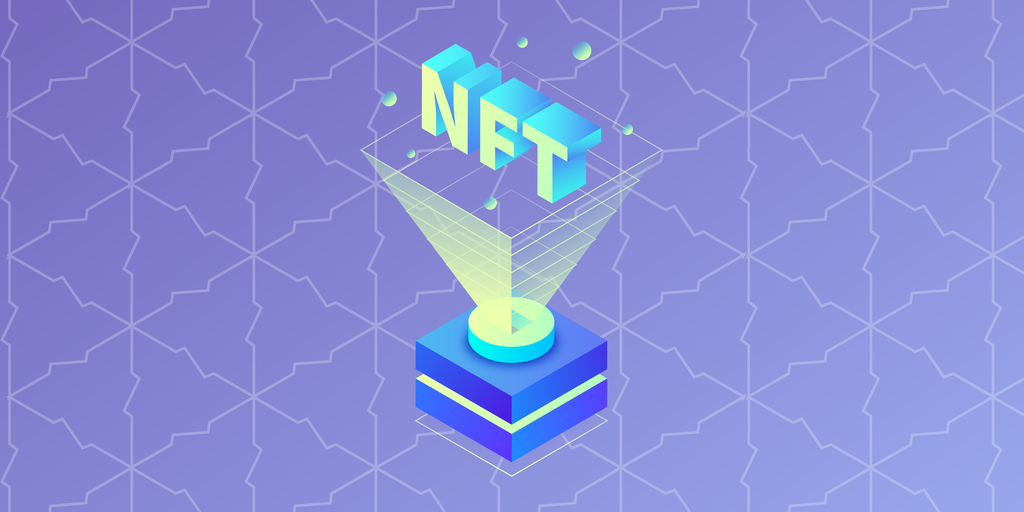The total trading volume of non-fungible tokens (NFTs) went from $200 million in 2020 to over $12 billion in the first quarter of 2022. For that value to be sustainable, there needs to be more to NFTs than just market hype and FOMO.
It’s still very early days as far as discovering real-world use cases for NFTs goes. But the cryptographically unique tokens have the potential to be more than just JPEGs on a blockchain. Utility NFTs—NFTs with actual use cases—could yet be the driving force that transforms NFTs from an investment craze into a new way to work, play and interact.
Utility NFTs are NFTs with use cases beyond just being unique digital assets. They are NFTs which grant their owner privileges, rights, or rewards which they would not otherwise be able to access.
Perhaps the easiest way to understand utility NFTs is with an example. If you are holding a concert with 800 spaces available, you could issue 800 paper tickets. Each paper ticket will be unique, or non-fungible, in the sense that it will have its own ticket number. But each unique paper ticket confers the same right, privilege, or utility. That utility is, in this case, entry to the concert.
Instead of issuing 800 paper tickets, the concert organizer could issue 800 utility NFTs. Each of the 800 NFTs would of course be unique and non-fungible, but just like the tickets, each one would grant its owner the same privilege or utility: entrance to the concert.
From a tech perspective, utility NFTs work in the same way as other NFTs. They are cryptographically represented and unique digital assets stored on a blockchain. The immutability and transparency of blockchain technology means that it is easy for NFT owners to prove that an NFT is stored in their wallet and nobody else's.
There are many ways to add utility to an NFT or series of NFTs; it’s less about the technology itself, and more about the application of that technology.
To take an example from the world of music, in March 2021, Kings of Leon became the first band to release an album, “When You See Yourself”, as a series of NFTs.
As well as being released as NFTs, the album was released in conventional formats, too, on platforms such as Spotify and iTunes. The album release featured different types of utility NFTs. One type of NFT included digital artwork and a digital download of the music, and could also be redeemed for a real-life physical limited edition vinyl copy of the album. Another type of NFT offered as part of the series could be redeemed for top seats at Kings of Leon shows.
Just days after releasing “When You See Yourself” in part as a series of NFT tokens, Kings of Leon had already made two million USD from NFT sales. Of that, over half a million dollars went to Crew Nation, a relief fund for music crews during the COVID-19 pandemic and beyond.
Just looking at the Kings of Leon example, it’s easy to conceive of other types of utility NFTs that could work just as well. If NFTs can grant front row seats at rock concerts, then why can’t they guarantee year-round tickets at football matches, effectively replacing season tickets?
In February 2022, a Florida home was sold for US$653,000, or 210 Ethereum, in an NFT auction.
Utility NFTs have already begun to make their presence felt in the worlds of business and popular culture. And NFT collections that initially launched without utility are increasingly evolving into utility NFTs.
For example, the well-known Bored Ape Yacht Club first launched as nothing more than a series of NFT images. Since then, Bored Ape NFTs have become access passes to exclusive events such as parties, as well as offering rewards in the form of being able to mint new NFTs.
Utility NFTs are in their early stages right now, but innovative new use cases are emerging every day.
In the future, they could replace everything from health insurance cards to loyalty cards to season tickets, with NFT holders being able to access healthcare, discounts, or entrance to events. Businesses could incentivize sales with NFTs that can be redeemed for discounts or freebies in the future, consigning paper discount tokens to the history books.
With the emergence of the metaverse, utility NFTs could emerge that confer benefits on the owner in the virtual shared world, such as entrance tickets to games or other exclusive virtual environments.
Utility NFTs can be used to prove and incentivize ownership, to build community, and even to protect the planet. The technology already exists; how we use it is limited only by our imagination.
Sign up for free online courses covering the most important core topics in the crypto universe—think Bitcoin, DeFi, and more— plus, earn NFT rewards along the way.
Author
Administraroot

